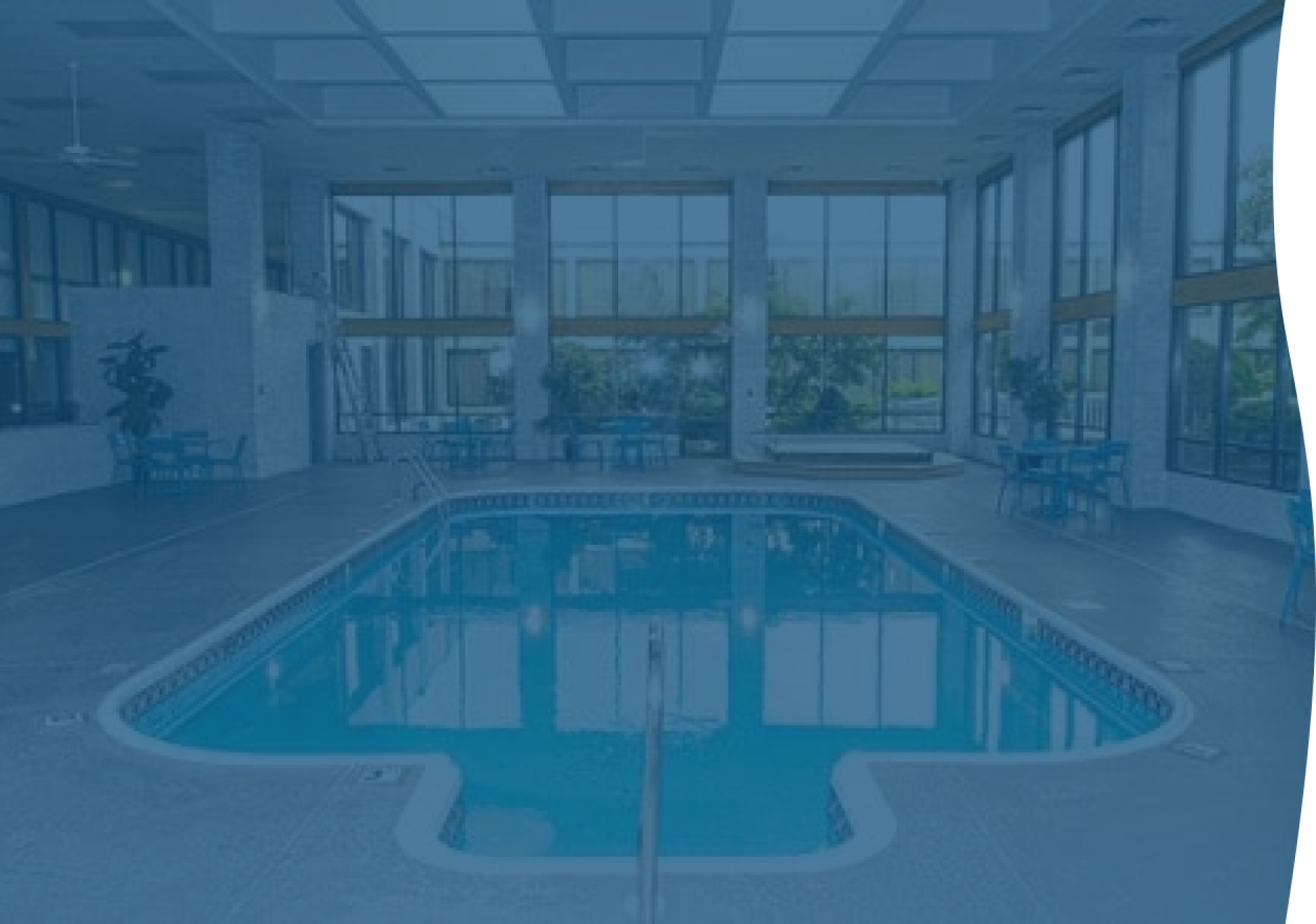Named for the Des Plaines River, which forms some of its boundaries, Des Plaines is a northeastern Illinois city not too far from Chicago. This community of 59,000 people features a number of businesses, schools, parks, other outdoor offerings, and Mountain View Adventure Center, Rivers Casino, and other attractions.
Like many across the country, the city has its share of drugs and alcohol. For example, police arrested two Des Plaines, Illinois, residents in 2021 for various drug charges.
Their arrests were connected to the contents of a warehouse in a nearby city. In the warehouse, authorities found:
- More than 7,600 pounds (almost four tons) of marijuana.
- About 406 pounds of marijuana/cannabis in edible form.
- 6,891 cartridges of THC, the mind-altering ingredient in marijuana.
- Over 700 grams of psilocybin mushrooms in bar form.
Estimates placed the value of these items at about $22 million.
Marijuana isn’t the only drug popular in Des Plaines and other northeastern Illinois communities. Opioids are also a problem.
Cook County is the home to Des Plaines, Chicago, and several other Illinois locales. The Cook County Medical Examiner’s Office reported opioid overdose-related deaths that occurred in the county outside the city of Chicago in 2019. The office said that:
- 70.9% of these opioid overdose-related deaths involved fentanyl.
- 53.9% of these 2019 deaths involved heroin.
- 19.1% of the deaths involved opioid pain relievers.
- 5.7% of the deaths involved methadone.
While drugs and alcohol may be problems in Des Plaines, the city and surrounding and its areas also have ways to solve these problems.

Our closest facility is in Illinois
19067 W Frontage Rd, Raymond, IL 62560-505
Talk to Our Intake Coordinators
Student Substance Use Disorder in Des Plaines, Illinois Students
Alcohol use is also common among Des Plaines, Illinois, residents, and alcohol use starts young.
Student substance use disorder in Des Plaines, Illinois, college and high school students is prevalent.
The 2020 Illinois Youth Survey recorded the responses of eighth, tenth, and twelfth grade students in Des Plaines and other Cook County locales.
Some of the students engaged in binge drinking, a practice where a male drinks around five or more drinks in two hours or under and a female drinks four or more drinks in the same time period.
According to the survey, the percentage of young people who reported that they engaged in binge drinking was:
- 14% of twelfth graders.
- 6% of tenth graders.
- 3% of eighth graders.
These figures correlate to the students’ other comments about alcohol. When asked if they used any alcohol:
- 29% of the twelfth graders said they had consumed alcohol in the previous 30 days.
- 19% of the tenth graders drank alcohol in the prior month.
- 12% of the eighth graders drank alcohol in the prior month.
Potential alcohol problems among Des Plaines, Illinois, residents may start young. Students may benefit from looking into rehab around the state, such as a rehab in Cicero, IL.
What to Look for When Choosing from Rehabs in Des Plaines, Illinois
If people don’t know how to begin their search for addiction treatment assistance in Des Plaines, Illinois, and surrounding areas, they’re not alone.
Many people have questions about rehab centers and how to find the right ones for themselves or their loved ones. To answer their questions, they might want to consider certain factors. The factors can include:
Accreditation
One way to find quality addiction treatment centers or programs is to check if they have accreditations or certifications. This means that third-party bodies have examined the entities and determined that they have met their criteria.
An example of a third-party examiner is The Joint Commission. This organization evaluates the quality and safety of behavioral health care and addiction treatment providers.
CARF International, formerly known as the Commission on Accreditation of Rehabilitation Facilities, is another such evaluator. It grants accreditation to programs that address opioid problems as well as behavioral health care providers.
LegitScript also studies addiction treatment organizations. It determines whether these organizations are legitimate, trustworthy businesses. If a local center isn’t properly accredited, consider looking into Skokie treatment facilities.
Demographics
Des Plaines, IL, has a diverse population. According to 2019 U.S. Census Bureau estimates, the population of Des Plaines was:
- 84.44% White
- 7.65% Asian / Asian American
- 1.01% Black or African American
- 0.26% Native American
- 0.02% Pacific Islander
- 4.64% from other races
- 1.97% from two or more races
If members of these communities need help for drug or alcohol problems, their addiction treatment might be more effective if it recognizes their cultural diversity.
Client-to-Staff Ratio
A treatment center or program’s client-to-staff ratio (also known as its patient-to-staff ratio) is the number of clients it has for each staff member.
Lower client-to-staff ratios mean that there are fewer clients for each employee. This allows staff members to give more time and attention to individual clients instead of rushing to assist many at the same time.
Learn More About Your Insurance Coverage
Don't see your Insurance Provider?
Services Included in Treatment
The types of treatment available are as varied as people and their addictions. If wanted services are not included in local programs, consider looking into Downers Grove rehab facilities. Just a few types of treatment and treatment approaches include:
Luxury rehab in Des Plaines, Illinois
People who go to luxury rehab facilities have access to many amenities, such as pools or spa-like environments. These facilities are often desirable locations, such as near mountains or the ocean.
Such settings can be soothing during challenging times. Addiction can take a mental and physical toll, and people might be anxious about their new lives. Luxury rehab can help people relax while giving them the tools to live healthier lives. Luxury rehab may not be available in all centers in Illinois, so consider searching in bigger cities—such as rehabs in Chicago or rehabs in Springfield.
Inpatient drug rehab in Des Plaines, Illinois
Clients stay at the centers that are providing care when they receive residential or inpatient drug rehab treatment.
Staying at the facilities physically removes people from drugs and the people, places, and things that might trigger their drug abuse or addiction. It can also help them develop ways to deal with triggers they might face in the future.
Inpatient alcohol rehab in Des Plaines, Illinois
The odds of recovery improve if people stay at inpatient alcohol rehab centers. That’s because inpatient treatment provides thorough care and continuous assistance.
People staying at centers for treatment don’t have access to alcohol or triggers that could drive them to drink again. They do have access to on-site medical care and therapy options that could assist them in emergencies and help them face other challenges during and after treatment.
Intensive outpatient programs (IOPs) in Des Plaines, Illinois
When people attend IOPs (also known as an intensive outpatient program or an IOP program), people don’t live at the centers while they’re undergoing treatment.
Instead, they live at home or another location and travel to their rehab facilities. IOPs often require clients to attend several hours a day and several days a week. This commitment gives people time to focus on healing.
Holistic rehab in Des Plaines, Illinois
Some rehab centers incorporate holistic practices into their regimens. These options can include yoga, meditation, dance and movement therapy, and other practices to address people’s minds, spirits, and bodies.
Substance use disorder and addiction can harm them all. Holistic rehab recognizes that they’re connected and uses these connections to promote sobriety.
Dual diagnosis rehab in Des Plaines, Illinois
It’s common for a person to deal with substance use disorder and a mental illness at the same time. It’s a condition known as dual diagnosis, co-occurring disorder, or comorbidity.
People might have problems with drugs or alcohol and become depressed. Or, people with depression, anxiety, or another mental illness might turn to drugs and alcohol as ways to cope. Dual diagnosis rehab treats both mental illnesses and substance use disorders, so they don’t worsen each other.
Cognitive behavioral therapy (CBT) in Des Plaines, Illinois
Cognitive behavioral therapy (CBT) strives to change people’s behaviors by changing the way they think and feel.
Many addiction treatment programs and centers use this type of therapy. It’s an approach that can help people address substance use disorder and addiction as well as the mental illnesses that could contribute to them.
Aftercare in Des Plaines, Illinois
People’s recoveries don’t end when they leave a rehab center or exit a rehab program. Recovery is a lifelong process.
Reputable rehab programs establish aftercare, or continuing care, for their clients. Aftercare planning procedures might include sobriety group meetings, therapy appointments, and other options that can help people apply the sobriety tools they’ve acquired in treatment.
People are different, so their alcohol and drug rehab and detox options are too.
Support Groups in Des Plaines, Illinois
It can be difficult to address addiction and stay sober. It’s even more difficult to do those things alone.
Support groups in and around Des Plaines, IL, can help ease the burden. Rehab treatment centers and programs often encourage people to join such groups during and after treatment.
By participating in support groups, people can acknowledge their success. They can realize that others care and that they’re not alone.
12-Step Rehab in Des Plaines, Illinois
Several support groups are 12-step groups. As their name indicates, these groups ask members to progress through twelve steps to address their substance misuse and recovery.
Some 12-step rehab groups in or near Des Plaines, Illinois, include:
- Alcoholics Anonymous (AA) asks members to make amends for what they’ve done and admit that they’re powerless to alcohol.
- Al-Anon and Alateen provide support for the loved ones of people with alcohol problems. Alateen focuses on helping teens and young people.
- Nar-Anon (Narcotics Anonymous, NA) helps people who have experienced drug abuse and addiction.
- Marijuana Anonymous (MA) helps people who have had problems with marijuana.
- Cocaine Anonymous (CA) assists people who have faced cocaine abuse or addiction.
- Dual Recovery Anonymous (DRA) recognizes that mental illnesses and substance use disorder are often connected and addresses both.
- Local Celebrate Recovery (CR) groups incorporate Christianity into their discussions of substance use disorders.
Support groups give people opportunities to connect with other people who might understand their lives because they may have had similar experiences themselves.
Non-12-Step Rehab in Des Plaines, Illinois
Other groups provide support for people who have struggled with alcohol or drugs. Groups that provide support that’s more scientific than spiritual include:
- LifeRing Secular Recovery (LifeRing) uses what it calls the three 3s—sobriety, secularity, and self-help—to help people find recovery.
- SMART Recovery (Self-Management and Recovery Training) builds its members’ motivation to avoid drugs, alcohol, or addictive behaviors.
- Women for Sobriety (WFS) addresses the emotional components of alcohol and drug misuse for people who identify as female.
- Adult Children of Alcoholics (ACA) states that some adults’ problems may stem from their parents’ problems with alcohol.
- Moderation Management (MM) employs tools to help its members quit drinking alcohol or moderate its use.
By meeting with others, people can share their challenges and their victories. They can receive compassion and support in an understanding, non-judgmental atmosphere.
Treatment Options at Rehab Centers in Des Plaines, Illinois
People who ask what to expect during inpatient drug rehab in Des Plaines, Illinois, might not receive one answer, but several.
Different kinds of therapy (group, individual, and family) are common in treatment, and so is education about drugs and alcohol.
Depending on the center or program, people might spend time hiking outdoors, taking care of animals, or creating works of art. They will probably also meet in support groups during and after treatment.
Researching addiction treatment centers and programs in Illinois can help people discover what they have to offer and whether these options could help them. Better yet, contact the best facility you plan to enroll in for your 30-day drug treatment programs or alcohol treatment programs. Also make sure to ask them if your insurance will cover you for 60 day treatment, 90 day treatment, 120 day addiction treatment or even 7-14 day addiction rehab.
Veterans Affairs Addiction Treatment in Des Plaines, Illinois
During their time in the military, veterans are likely to experience combat, other violence, or accidents. They may have been injured, separated from their loved ones for long periods of time, or witnessed death.
These incidents can cause stress, and stress may become post-traumatic stress disorder (PTSD). Some veterans use alcohol and drugs to cope with PTSD and other mental and physical pain. Sometimes, these coping mechanisms become substance use disorder or addiction.
Veterans can ask about addiction treatment and other resources by contacting the U.S. Department of Veterans Affairs.
In terms of other help, the Des Plaines Park District also offers a Veterans Back to Work Boot Camp to provide career assistance to people who have served in the military.
Paying for Rehabs in Des Plaines, Illinois
Addiction treatment can be expensive. Some people might use the cost as an excuse not to attend. But failing to find timely treatment for drug and alcohol problems can make them worse.
Contacting their chosen rehab centers and programs is a good first step. Workers at the organizations will often work with insurance providers to maximize their clients’ coverage.
People can pay out-of-pocket for rehab, or they can apply for scholarships to grants to defray the cost. They can also ask banks or loved ones to give or loan them money.
It is possible to find effective addiction treatment and ways to finance it. You can also look for a rehab in towns nearby like a rehab center in Cicero.
Traveling to Des Plaines, Illinois Rehab Centers
Another benefit of Des Plaines, Illinois, addiction treatment resources is their accessibility. The distance from Chicago O’Hare International Airport to Des Plaines is about five or six miles. From Chicago Midway International Airport, Des Plaines is around 29 miles.
In addition, Des Plaines has a Metra station that provides commuter train service to and from the city and surrounding areas. There are also subways, buses, shuttles, taxis, and ridesharing services in the region.
People can also make travel arrangements with their rehab centers and programs. For people struggling with substance use disorder or addiction, Des Plaines, Illinois, and nearby areas have many resources for recovery and many ways to access them.
Drug and Alcohol Rehab Near Des Plaines
Sources
Medical disclaimer:
Sunshine Behavioral Health strives to help people who are facing substance abuse, addiction, mental health disorders, or a combination of these conditions. It does this by providing compassionate care and evidence-based content that addresses health, treatment, and recovery.
Licensed medical professionals review material we publish on our site. The material is not a substitute for qualified medical diagnoses, treatment, or advice. It should not be used to replace the suggestions of your personal physician or other health care professionals.














